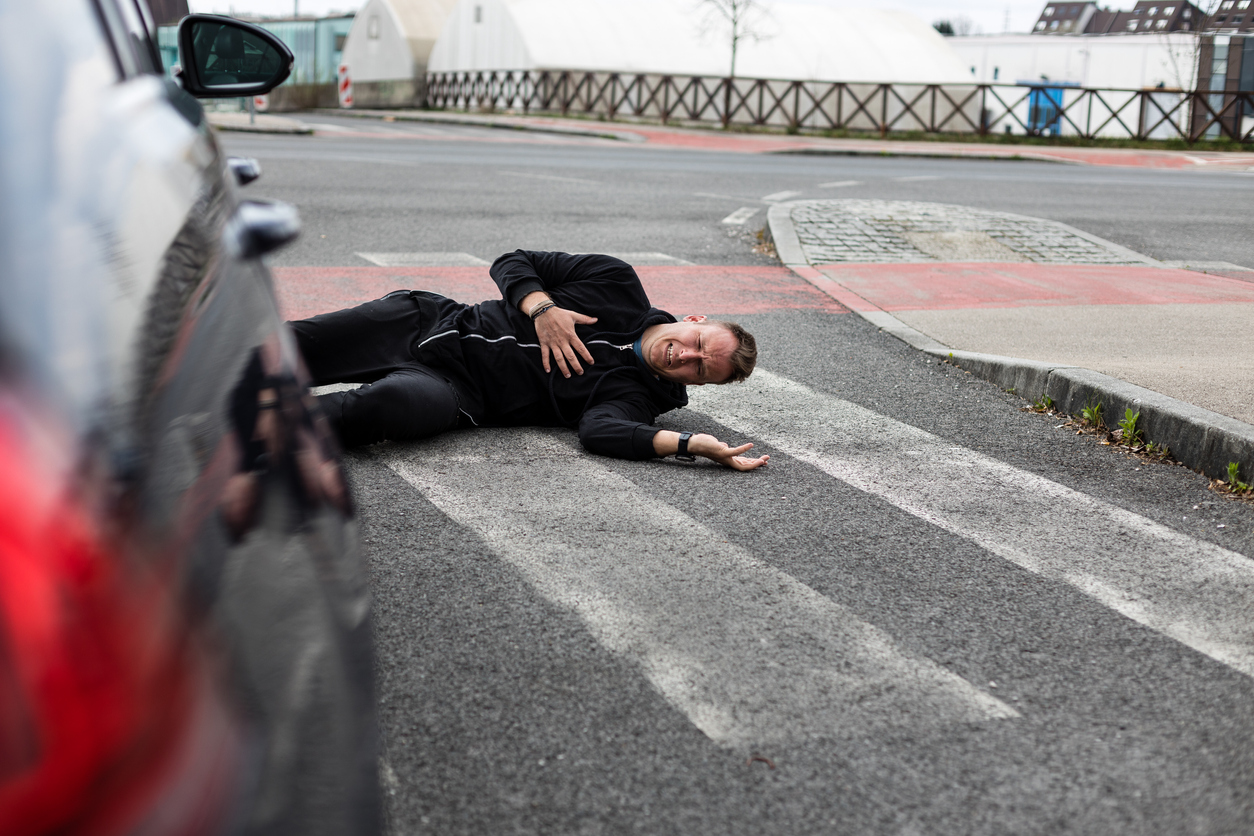
Vehicular manslaughter cases are complex and emotionally charged, often involving severe consequences for all parties. When faced with such serious charges, understanding the possible legal defenses becomes crucial. Vehicular manslaughter, defined as causing the death of another person through negligent or reckless driving, can lead to significant legal penalties, including lengthy prison sentences and substantial fines. Therefore, it is essential to explore the various legal defenses that can be employed to challenge these charges effectively.
The Significance of Intent in Vehicular Manslaughter Cases
One of the critical elements in vehicular manslaughter cases is the intent of the driver. Unlike murder charges, which require proof of intent to kill, vehicular manslaughter generally involves unintentional actions leading to a fatality. The prosecution must demonstrate that the defendant’s actions were reckless or grossly negligent, resulting in the death of another person. Defense strategies often focus on undermining this claim by showing that the driver did not act with the required level of negligence or recklessness.
Lack of Negligence or Recklessness
A common defense in vehicular manslaughter cases is to argue that the driver was not negligent or reckless. This defense aims to prove that the defendant was driving responsibly and that the accident was unavoidable. For instance, if a sudden medical emergency, such as a heart attack, caused the driver to lose control of the vehicle, it may be argued that the accident was not due to negligence. Additionally, if the road conditions were hazardous due to unforeseen circumstances like a sudden downpour or an oil spill, the defense can argue that the driver could not have reasonably avoided the accident.
Challenging Causation
Another vital aspect of defending against vehicular manslaughter charges involves challenging the causation. The prosecution must prove that the defendant’s actions directly led to the victim’s death. The defense can contest this by presenting evidence that other factors contributed to the fatality. For instance, if the victim had pre-existing medical conditions that significantly contributed to their death, the defense can argue that the defendant’s actions were not the sole cause of the fatality. Additionally, if another driver’s negligence played a significant role in the accident, it can be used to mitigate the defendant’s liability.
Questioning the Accuracy of Evidence
Vehicular manslaughter cases often rely heavily on evidence such as eyewitness testimonies, surveillance footage, and accident reconstruction reports. A robust defense strategy includes scrutinizing the accuracy and reliability of this evidence. Eyewitness accounts can be unreliable due to the traumatic nature of accidents, leading to discrepancies in their testimonies. Defense attorneys may also challenge the methods and conclusions of accident reconstruction specialists, arguing that their findings are flawed or biased. Surveillance footage, if available, must be carefully analyzed to ensure that it accurately depicts the events leading to the accident.
Disputing Chemical Test Results
In cases where vehicular manslaughter charges are linked to driving under the influence of alcohol or drugs, disputing the accuracy of chemical test results is a crucial defense strategy. Breathalyzer and blood tests are not infallible and can produce false positives due to various factors such as improper calibration, human error, or contamination. Defense attorneys can challenge the procedures followed during the administration of these tests and the handling of samples to cast doubt on their reliability. Successfully disputing the validity of chemical test results can weaken the prosecution’s case significantly.
Presenting an Alibi
An alibi defense can be effective in certain vehicular manslaughter cases. If the defendant can provide credible evidence that they were not present at the scene of the accident when it occurred, it can lead to an acquittal. This defense requires substantial proof, such as witness statements, video footage, or electronic records, to corroborate the defendant’s claim. Presenting a solid alibi can directly challenge the prosecution’s narrative and create reasonable doubt about the defendant’s involvement in the accident.
Self-Defense or Defense of Others
In rare cases, vehicular manslaughter charges may arise from situations where the defendant was acting in self-defense or defending others. If the driver can demonstrate that they were attempting to avoid a greater harm, such as evading an imminent threat to their life or the lives of passengers, it can serve as a defense. This requires showing that the defendant’s actions were a reasonable response to the perceived danger and that no viable alternatives were available. This defense is complex and requires a thorough examination of the circumstances leading to the accident.
Proving Mechanical Failure
Mechanical failure of the vehicle can also serve as a defense in vehicular manslaughter cases. If the accident was caused by a sudden and unforeseeable mechanical defect, the driver may not be held liable for the resulting fatality. Defense attorneys can present evidence such as maintenance records, testimony, and vehicle inspection reports to demonstrate that the driver was unaware of the defect and that it was beyond their control. This defense shifts the focus away from the driver’s actions to the condition of the vehicle.
Comparative Negligence
In some jurisdictions, the concept of comparative negligence may be applicable in vehicular manslaughter cases. This means that if the victim’s actions contributed to the accident, the defendant’s liability may be reduced proportionally. For example, if the victim was jaywalking or engaged in risky behavior at the time of the accident, the defense can argue that the victim’s negligence played a significant role in causing the fatality. Demonstrating comparative negligence requires a detailed analysis of the victim’s actions and their impact on the accident.
The Role of Legal Representation
Navigating the complexities of vehicular manslaughter charges requires the assistance of legal representation. Experienced defense attorneys play a crucial role in developing and presenting these defenses effectively. They conduct thorough investigations, gather and analyze evidence, interview witnesses, and work with specialists to build a compelling case. Legal representation is essential not only for presenting defenses but also for negotiating with the prosecution and advocating for the defendant’s rights throughout the legal process.
Building a Strong Defense Strategy
Developing a robust defense strategy in vehicular manslaughter cases involves a comprehensive approach tailored to the specific circumstances of the case. Defense attorneys begin by conducting a detailed investigation into the accident, including reviewing police reports, medical records, and witness statements. They collaborate with accident reconstruction specialists to recreate the scene and identify potential flaws in the prosecution’s case. Additionally, they explore any mitigating factors such as the defendant’s medical history, driving record, and behavior before and after the accident.
The Importance of a Thorough Investigation
A thorough investigation is the foundation of a strong defense in vehicular manslaughter cases. Defense attorneys leave no stone unturned in their quest to uncover evidence that supports their client’s innocence or mitigates their liability. This includes obtaining and analyzing surveillance footage, reviewing maintenance records of the vehicle, and interviewing witnesses who can provide critical insights into the events leading to the accident. A meticulous investigation can reveal inconsistencies in the prosecution’s case and uncover alternative explanations for the accident.
The Impact of Legal Precedents
Legal precedents play a significant role in shaping defense strategies in vehicular manslaughter cases. Defense attorneys often rely on previous court rulings to support their arguments and challenge the prosecution’s case. Precedents can provide valuable insights into how courts have interpreted and applied the law in similar cases. By referencing relevant legal precedents, defense attorneys can strengthen their client’s position and increase the likelihood of a favorable outcome.
The Role of Testimony
Testimony is often crucial in vehicular manslaughter cases, providing scientific and technical insights that can sway the court’s opinion. Defense attorneys work with specialists in fields such as accident reconstruction, toxicology, and mechanical engineering to challenge the prosecution’s evidence and present alternative explanations for the accident. Witnesses can provide objective analyses that support the defense’s arguments and cast doubt on the prosecution’s narrative. Their testimony can be instrumental in establishing reasonable doubt and securing an acquittal.
Negotiating Plea Bargains
In some cases, negotiating a plea bargain may be in the defendant’s best interest. Plea bargains involve the defendant agreeing to plead guilty to a lesser charge in exchange for a reduced sentence. Defense attorneys evaluate the strength of the prosecution’s case and the potential risks of going to trial before recommending a plea bargain. They negotiate with the prosecution to secure the most favorable terms possible for their client. Plea bargains can provide a way to avoid the uncertainty of a trial and achieve a more lenient sentence.
The Emotional Toll of Vehicular Manslaughter Cases
Vehicular manslaughter cases take a significant emotional toll on defendants and their families. The prospect of facing severe legal consequences, coupled with the emotional burden of causing someone’s death, can be overwhelming. Defense attorneys provide not only legal representation but also emotional support to their clients. They guide defendants through the legal process, help them understand their rights, and offer reassurance during a challenging time. Ensuring that defendants feel supported and informed is a crucial aspect of effective legal representation.
Vehicular manslaughter charges can have life-altering consequences, making it imperative to seek competent legal representation. At Alpert Schreyer Criminal Defense Attorneys, our dedicated team of defense attorneys understands the complexities of these cases and is committed to providing comprehensive legal support. If you or a loved one is facing vehicular manslaughter charges, contact us today to discuss your case.
Our experienced attorneys will work tirelessly to develop a robust defense strategy tailored to your unique circumstances, ensuring that your rights are protected and that you receive the best possible outcome. Reach out to Alpert Schreyer Criminal Defense Attorneys, and let us guide you through this challenging legal journey.
Contact the Vehicular Manslaughter Attorneys at Alpert Schreyer Criminal Defense Attorneys in Maryland for Help Today
For more information, contact Alpert Schreyer Criminal Defense Attorneys to schedule a confidential consultation with a vehicular manslaughter attorney. Our team is available to assist clients in Lanham, Frederick, Rockville, Waldorf, Annapolis, and Lexington Park, Maryland.
We proudly serve Prince George’s County, Frederick County, Montgomery County, Charles County and the surrounding areas. Visit our law offices at:
Alpert Schreyer Criminal Defense Attorneys – Lanham Office
4600 Forbes Blvd Ste 201 Lanham, MD 20706
(301) 262-7005
Available 24/7
Alpert Schreyer Criminal Defense Attorneys – Frederick Office
25 E Patrick St #200 Frederick, MD 21701
(301) 381-1993
Available 24/7
Alpert Schreyer Criminal Defense Attorneys – Rockville Office
11140 Rockville Pike 550-J Rockville, MD 20852
(301) 364-3195
Available 24/7
